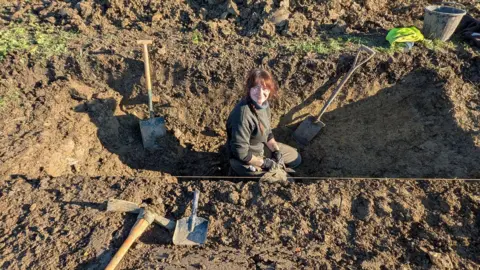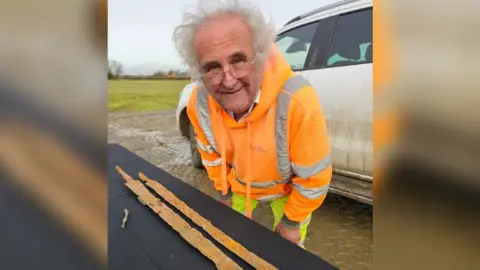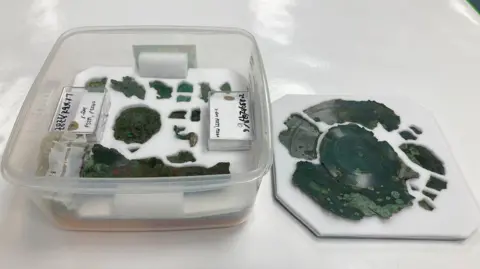Alexandra Bassingham
BBC News, West of England

 Historic England
Historic England
An extensive Iron Age settlement established more than 2,000 years ago has been unearthed following a rare sword find, archaeologists have revealed.
The excavation near Willersey, Gloucestershire, has also found what could be remnants of a Roman villa.
The dig follows the discovery of two iron Roman cavalry swords during a metal detecting rally near Willersey two years ago. Those "rare" swords will go on display at the Corinium Museum, Cirencester, from 2 August, Historic England confirmed.
Ian Barnes, senior archaeologist, said the excavation was providing "valuable insights into the nature of settlement patterns from the Early Iron Age through to the Roman period in Gloucestershire".

 James Haris
James Haris
Speaking on finding the swords, metal detectorist Glenn Manning said: "This was only my second time metal detecting and the morning before the rally, I had a feeling I would find something special."
"I'm excited to find out more about them," he added.
Excavations have found evidence of settlements spanning several centuries, including three, possibly four, Iron Age ring ditches measuring up to 18.5 metres (60ft) in diameter, a spokesperson from Historic England said.

 Corinium Museum
Corinium Museum
A substantial rectangular enclosure measuring five metres wide (16ft) and remains of Roman limestone buildings - perhaps representing a winged villa - were also discovered.
Following months of meticulous digging by archaeologists in the area, Roman building materials including ceramic roofing and box flue tiles, and painted wall plaster were dug up.
The work was funded by Historic England and undertaken in partnership with Cotswold Archaeology.
Mr Barnes added: "This new evidence will help us to understand more about what happened around the period of the Roman Conquest, which must have been a tumultuous time."









